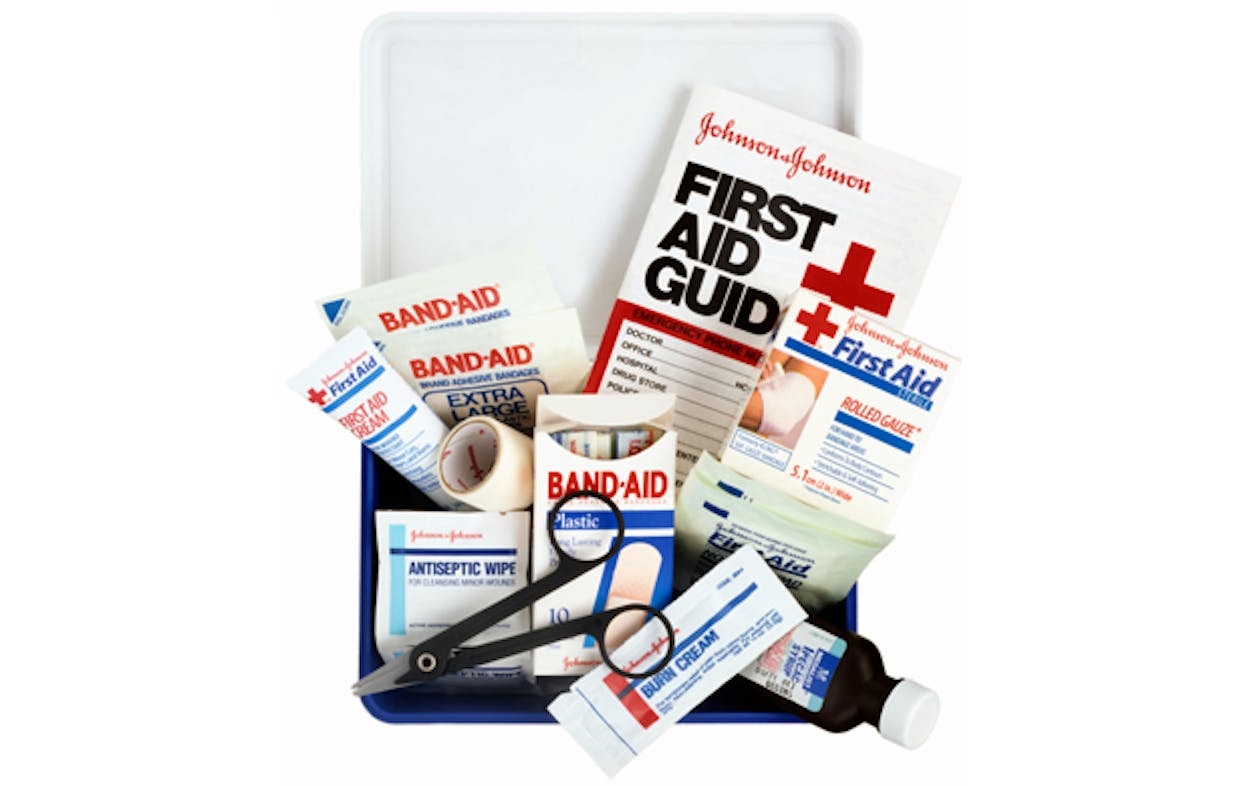The Texas economy is one of the most robust in the world. Wildly profitable companies and ingenious entrepreneurs call this state home, and what happens here influences businesses around the nation. Here’s a slice of the profits, losses, big deals, and backroom decisions happening across Texas this week.
Abbott & Texas Sue Johnson & Johnson for Millions & Millions
The trial for Texas’ lawsuit against Johnson & Johnson began this week, spearheaded by Attorney General Greg Abbott. The state accuses Janssen Pharmaceuticals, a J&J subsidiary, of fraudulent marketing practices and bribery in order to boost sales of its antipsychotic drug Risperdal. Abbott claims the company illegally marketed the drug to children and the elderly, and that it “downplayed the risks of Risperdal, despite FDA admonishments,” BusinessWeek reported.
The Bottom Line: Part of the case against Janssen is based on a 2004 investigation that found evidence the company paid state mental health officials $340,000 to promote Risperdal as a “preferred drug” in a public health program. J&J’s defense attorneys claim there is no evidence the officials “did anything differently as a result of anything we said or did.”
No Way, San Jose
Bay Area, meet Bayou City. Houston’s tech job market grew by 149 percent in 2011, the biggest increase of any city in the U.S.—surpassing even San Jose, the crown jewel of Silicon Valley—according to the Houston Business Journal. Researchers attributed the city’s success to a growing demand for clean energy innovation, as well as new developer and engineering positions being created locally.
The Bottom Line: Meanwhile, the rest of the state isn’t doing too badly, either. Moody’s Analytics and the Federal Reserve each projected this week that Texas will lead the rest of the country in job creation in 2012.
Borders, Ballots, and Business
Sunday’s New York Times featured a report by the Texas Tribune’s Julian Aguilar about how the outcome of Mexico’s upcoming presidential election could affect its economic and political relationships with Texas. (Full disclosure: Texas Monthly provides cultural coverage for the New York Times’ Texas Report, which is produced by the Texas Tribune.)
Trade has gradually increased during President Felipe Calderón’s time in office despite widespread drug-related violence and a shaky global economy. To ensure the continued strength of the peso, Calderón’s successor will likely need to bolster the fight against the cartels and (at least) hold steady with current economic policies, Aguilar wrote.
The Bottom Line: Laredo, El Paso, and Houston are three of Mexico’s top four trading partners in the U.S., and the relationship appears to be getting even stronger: Trade with Houston grew by 51 percent from 2010 to 2011.
On the B(road)band Again
This week at the International Consumer Electronics Show in Las Vegas, Dallas-based Texas Instruments unveiled “car infotainment processors and wireless systems” that will pave the way for new kinds of onboard mobile apps.
According to Engadget, the new technology would allow drivers to “turn their car into a bona fide WiFi hotspot while simultaneously conducting Bluetooth business, without breaking a stride.”
Bottom Line: It remains to be seen if TI’s new platforms will have the staying power of the VCR, the DVD, or Nintendo—all of which were first introduced at CES—or whether they will go the way of less successful CES alums like the Laserdisc and the MiniDisc.
The Week’s Winner: Asian Companies Moving to South Texas
City leaders in Robstown, just west of Corpus Christi, are close to reaching an economic development agreement that could bring several Chinese companies to the area and potentially create hundreds of jobs locally.
The city, which has a longstanding “Sister City relationship” with Yuhang District in China, has proposed that Chinese manufacturers could use Robstown “as a storage and distribution hub,” reports the Corpus Christi Caller-Times.
Also this week, Dallas-based Hunt Oil agreed to sell a 35-percent stake in its South Texas shale holdings to Japan’s Marubeni Corp. for $1.3 billion. Once the deal is finalized, Marubeni will become Japan’s largest holder of shale oil reserves.
The Week’s Loser: Your Sweet Tooth
It’s been a sour week for Texas sugar pushers.
Last Friday, Imperial Sugar (the namesake of Sugar Land, Texas) released some grim financial figures, including a $53.4 million loss over the last fiscal year, prompting concern that the company could soon fall into default.
Then on Monday, Hostess Brands, the Irving-based maker of Twinkies, Ding Dongs, and Sno Balls, filed for bankruptcy.
Even more bad news came Wednesday with the announcement that beloved Dublin Dr Pepper (sweetened, incidentally, with Imperial cane sugar) will be discontinued as part of a settlement agreement between the Dublin bottler and its Plano-based corporate parent, Dr Pepper Snapple. The company says it will “continue to distribute a sugar-sweetened Dr Pepper” in Central Texas, but the consensus among Dublin zealots is that it won’t be the same—one case of the good stuff has turned up on eBay with an asking price of $9,999 (plus shipping).






